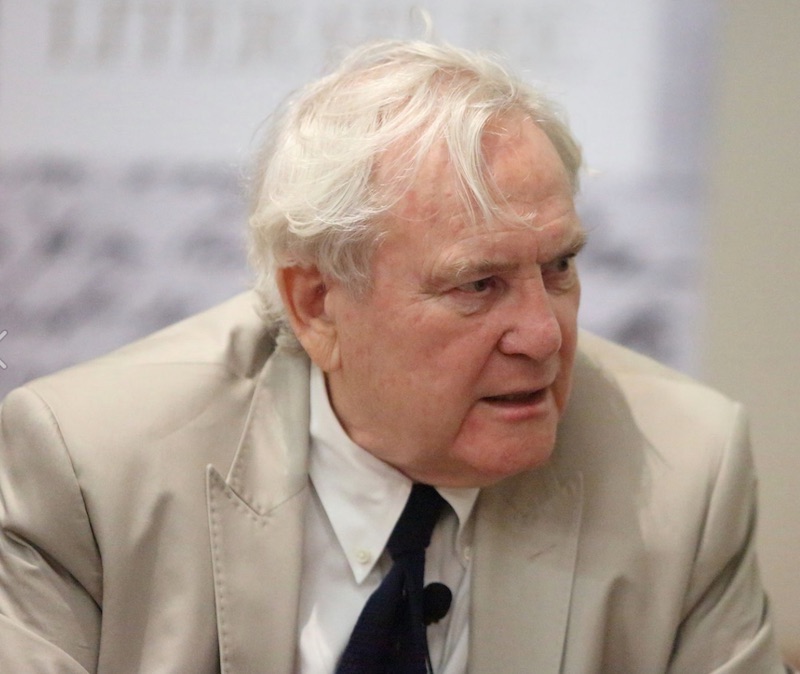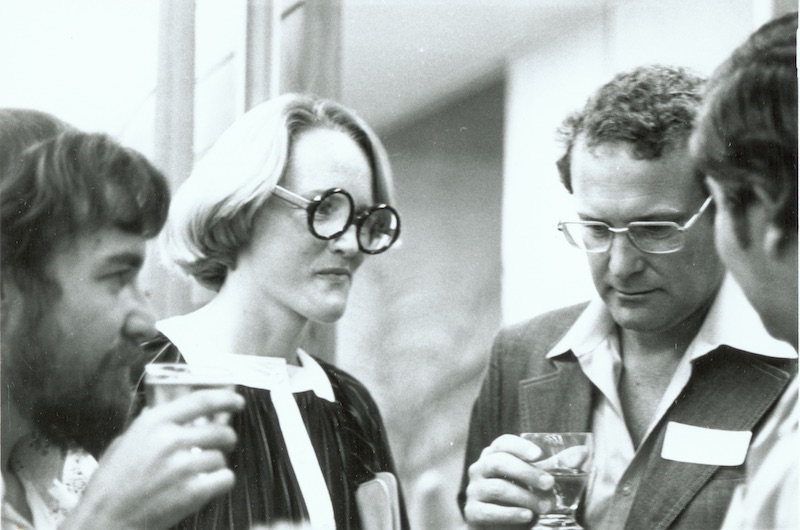In this guest blog post from Fryer intern Emma Newman, find out more about award-winning Australian author Frank Moorhouse and his manuscripts held in the Fryer Library.
Frank Moorhouse has held an interesting place in the landscape of modern Australian literature. His novel Grand Days was “at the centre of a brouhaha” when it was not considered for the 1994 Miles Franklin Award, supposedly due to its lack of Australian content. The sequel, Dark Palace, won the award in 2001: not only did this reinforce his status as an important contributor to Australian literature, but also the current range and landscape of Australian stories as being one in a process of change. This series, the Edith trilogy, was completed with the publication of Cold Light in 2011 and follows an Australian woman involved in diplomacy throughout the twentieth century.

In his Fryer Lecture in Australian Literature, Moorhouse discusses the strange position of an Australian writer. Not only do they contribute to the literature of a language dominant in the Western world, Australia is so vast in size the Australian writer can rarely encompass the entirety of the nation in their work. Instead, we must examine the specific spaces put forward by Australian writers; in Moorhouse’s case, how an Australian woman navigates international spaces such as the League of Nations. Moorhouse’s Fryer Lecture is not the only contribution he has made to Fryer’s cultural heritage work, as the Fryer currently holds his manuscript material in their archives. In this lecture, he says “If you live long enough, you become an archive”, and his work in the Fryer Library provides a valuable window into the recent literary history of Australia and how his renowned work has been created.
What is manuscript material?
Manuscript material encompasses any unpublished materials that bear some relation to an author or their work. Moorhouse’s manuscripts hold multiple sources to his creations: cards, images, drafts and correspondence with other people as some examples. Cultural heritage libraries and archives hold manuscript material not only for conservation purposes, but to also make these sources available to researchers interested in the content and history of these manuscripts. Moorhouse’s archive is incredibly valuable to see what happens behind the finished work: in particular, a speech he performed at the Kennedy Centre in 1994 about the Edith Trilogy – at the time, a duology – not only shows his thought process behind the novels, but also how he talks about these novels at the time.

Edith Trilogy
In his Kennedy Centre talk, Moorhouse has thirteen different points regarding how he writes and understands a woman’s point of view. These thirteen points – ranging from Virginia Woolf and Sigmund Freud, to the act of childbirth and his editors – provide a traceable history of his research and thought process, invaluable to understanding how Moorhouse approaches a perspective that is different from his. His construction of Edith is shown to be complex, engaged and thoughtful, where this information is often unavailable in the final published text.
Moorhouse considers both the reading and writing process to occur in private spaces: “Art is something we perceive and feel to be true, in their enrichment and in their role in our culture, but often it’s invisible, and it’s not always tangible to see how good art works in a society.” However, the ability to open his archive – and in some respects, his mind – allows us to see this process in a more tangible light. Our perception of literary art can expand when we make literature less private, where manuscript material can enrich our understanding of literary history and the creation of texts.
Find out more
The Frank Moorhouse Papers are available to view by appointment in the Fryer Library Reading Room.
References
UQ Library (2015). Fryer Lecture in Australian Literature: Frank Moorhouse.
Kennedy Centre talk 12 October, 1994, Frank Moorhouse Papers, UQFL231, Fryer Library, The University of Queensland.
Steger, Jason. (2011, November 12) 'Interview: Frank Moorhouse.' The Sydney Morning Herald.